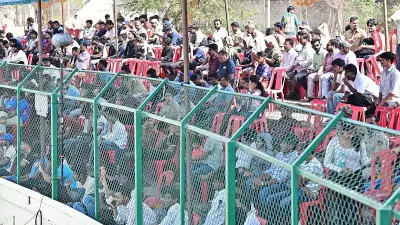
The ongoing Women's World Cup 2025 has hit an unprecedented weather hurdle, with Colombo witnessing its fifth consecutive washout due to relentless rain. The latest abandonment came during the crucial match between Pakistan and New Zealand, leaving players, officials, and fans utterly frustrated.
Player Frustration Boils Over
Pakistan's bowling spearhead Fatima Sana didn't mince words when expressing her disappointment. "It's heartbreaking to see so many matches being washed out," she stated. "We train for years for these moments, only to have weather ruin everything."
The young fast bowler went beyond mere frustration, calling for concrete changes in how venues are selected for major tournaments. Her concerns highlight a growing crisis in women's cricket scheduling.
The Colombo Conundrum
The situation in Colombo has reached critical levels:
- Five consecutive matches abandoned without a ball bowled
- Critical tournament points decided by rain rather than performance
- Growing concerns about tournament integrity and player morale
- Significant financial losses for organizers and broadcasters
A Call for Systematic Change
Fatima Sana emphasized that the issue goes beyond current disappointments. "This isn't just about one tournament," she explained. "If we want women's cricket to grow globally, we need to ensure matches actually happen. Better venue selection, proper scheduling considering weather patterns - these are essential for the sport's future."
Her comments reflect broader concerns within the cricketing community about the need for more strategic planning in women's cricket infrastructure and scheduling.
Tournament Implications
The repeated washouts have created uncertainty in group standings and qualification scenarios. Teams that prepared meticulously find their fortunes dictated by weather rather than skill, raising questions about tournament fairness.
As the Women's World Cup 2025 continues, all eyes remain on the skies and the ICC's response to what many are calling a scheduling disaster that could have been prevented with better planning.






